People
United Kingdom

Lisa Lazard is a Professor in the School of Psychology and Counselling at The Open University. Her research interests include gender, intersectional inequalities, identity and power. She has studied these issues in relation two broad areas – sexual harassment and digital cultures. Her recent research on sexual harassment is concerned with how gendered, intersectional inequalities shape contemporary understandings of this form of gendered violence. Through this work, Lisa has been commissioned as a UK parliamentary consultant and trainer for several years, working on gendered working relationships, respect and dignity in organisational settings. In her capacity as a consultant and trainer, Lisa has developed evidence-based strategy, policy and training programmes on gender equality and delivered training for clients in both private and public sectors. Lisa’s work on digital cultures has focused on women’s curation of self and relationships on-line, digital motherhood and families use of social media. Her academic interest in gendered relationships has facilitated the long-standing involvement she has had in the Psychology of Women & Equalities Section of the British Psychological Society where she is currently serving as Chair.

Rose Capdevila is Professor of Psychology at The Open University (UK). Her research focuses on the construction and transgression of discursive boundaries around identity – in particular political and gender identities. She has recently been conducting research on gender and digital spaces as well as the history of feminist psychology in the UK. Rose co-edits the book series Feminist Companions to Psychology and was co-editor of the award-winning Handbook of International Feminisms: Perspectives on Psychology, Women, Culture, and Rights. She has been co-editor of the journal Feminism & Psychology and long time member and past chair of the Psychology of Women & Equalities Section of the British Psychological Society.
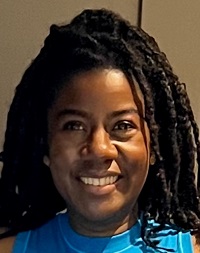
Simone is a senior research manager at The Open University. At the core, her projects have focused mainly on international development, working with academics to develop partnerships and research initiatives in the Global South. She has also project managed multiple institutional projects on Gender, such as Athena SWAN.

Alison Davies is a post-doctoral research associate at The Open University. Her research interests include gender, identity and social justice issues, particularly in relation to the gendering effects of mental health discourses. More recently, her research focus has been on digital exclusion and the psychosocial barriers to digital engagement. She is a committee member of the Psychology of Women & Equalities Section of the British Psychological Society.
Germany
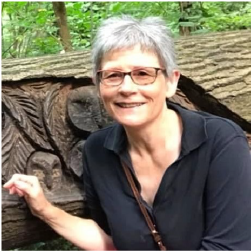
Irmgard Tischner is a critical (health) psychologist with a keen interest in gender, health and social justice issues such as the positioning and representation of women in contemporary societies, social inequalities in health and work environments, etc.. Her research focus is on the productive nature of language and the dominant discourses on gender, health and society, predominantly using discourse and thematic analysis as her method of analysis. Irmgard has gained international working experience in the industry as well as higher education, and she has been working at Deggendorf Institute of Technology (Germany) since 2018. Irmgard is an active member of the Story Completion research team (https://www.storycompletion.net/), as well a member of the BPS Psychology of Women and Equality Section.
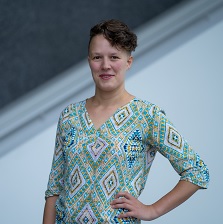
Antonia Heil joins GEiO as a PhD student in Gender and Political Science at Deggendorf Institute of Technology. Her research interests include the study of political parties and gender studies. In her work, she explores social structures and power relations, electoral behavior, and extremism.
Iceland

Annadís Greta Rúdólfsdóttir is an associate Professor at the Faculty of Education, University of Iceland. She studied at the London School of Economic and Political Science and completed her PhD in Social Psychology in 1997. She worked in the UK for 10 years, first as a lecturer at the department of Social Psychology at LSE (1999-2000) and then as a senior lecturer in social psychology at the University of the West of England (UWE) (2000-2009). She was the Studies Director of the United Nations University Gender Equality Studies and Training Programme (UNU-GEST) between 2009-2015. Dr Rúdólfsdóttir has done extensive research on gender and specialises in qualitative research methods. In her research she has used affective discursive approaches to analyse constructions of gender, young femininities, motherhood, and young feminist movements. Her latest publications have been in Journal of Gender Studies, Feminism and Psychology, Social Science and Medicine and Gender Work and Organization.
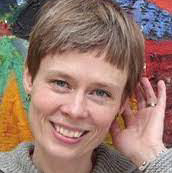
Gyða Margrét Pétursdóttir is a Professor in Gender Studies at the Faculty of Political Science, University of Iceland. She completed her Ph.D. in 2009 from the University of Iceland. Her main areas of research are gender, gender relations, work cultures, gender in higher education, feminism in higher education, police work and gender, family responsibility, masculinities, femininities and gender based violence from various angles. She has carried out both quantitative and qualitative research but focuses more on the latter. Pétursdóttir´s research has been published internationally, most recently in Journal of Gender Studies, Gender and Education and NORA: Nordic Journal of Feminist and Gender Research.

Katrín Ólafsdóttir completed a PhD degree from the University of Iceland in 2022, specialising in critical studies. She is a postdoctoral researcher and lecturer at the School of Education, University of Iceland. Her research interests include critical theory, power imbalances, gender, intimate partner violence and affect theory.
Flora Tietgen is a doctoral candidate and adjunct lecturer at the Faculty for Education and Diversity at the School of Education, University of Iceland. Her research interests include gender-based violence, immigrant experiences, structural violence, intersectionality and critical theory. Her PhD project is on immigrant women's experiences of intimate partner violence in Iceland. Flora completed an MA degree in political science and sociology from the University of Würzburg, Germany, in 2017. Before starting her PhD, she worked as a project assistant at a gender research and training institution in Iceland.
Spain
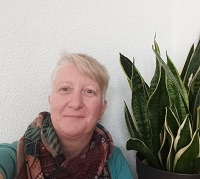
Barbara Biglia is a Serra Hunter Associate Professor in the Department of Pedagogy of the Universitat Rovira and Virgili. She holds a PhD in Psychology from the UB (2006), and her research focuses on a diverse range of themes: sexual and gender-related violence; processes of knowledge construction/production and feminist epistemology; research methodology; the influence of gender roles in processes of identity construction; virtual teaching and (cyber)feminist pedagogy; analysis of public policy. She is the URV PI of the research group GREDI, founder of the SIMREF and board member of the Inter-University Women and Gender Studies Institute (IIEDG). Her more recent finalized Project has been the SeGReVUni Visibilizing and measuring the scale and scope of sexual and gender-related violence in universities. In 2022 she won an award of the Catalan Justice Observatory of Machist Violence for the research Let's learn together: responses to Sexual and gender-related violence in Catalan and Mexican Universities and the mention Encarna Sanahuja for the excellence in the inclusion of gender perspective in university teaching practice.
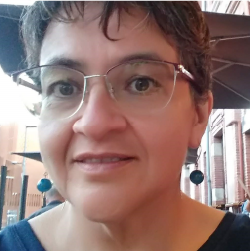
Adriana Gil-Juárez has a degree in Psychology from the UNAM in Mexico, a Master’s degree in social psychology and PhD in Psychology from the Universitat Autònoma de Barcelona where she is currently a Senior Lecturer in Developmental and Educational Psychology. She has been visiting researcher at the Centre for Gender and Women Studies at Lancaster University, UK and visiting lecturer at the Department of Sociology, Universidad Autónoma Metropolitana Iztapalapa, Mexico. She has been coordinating the JovenTIC research group since 2000. Adriana’s research interests include the gender digital divide, gender identities and ICTs, online gender violence and qualitative methodology. Adriana is a member of the research group GREDI of the Universitat de Barcelona and co-principal researcher of the SEGREVUNI project.
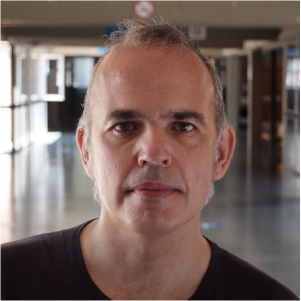
Jordi is a Lecturer at the Department of Sociology of The University of Barcelona. He holds a PhD in Social Psychology from the Universitat Autònoma de Barcelona. He has been a visiting scholar at the Metropolitan Manchester University and the Pontificia Universidad Católica de Valparaíso. He has previously worked at other academic institutions such as the Universitat Rovira I Virigli and the Universitat de Girona.
He is co-coordinator of the Interdisciplinary Working Group on Feminist Research Methodology a research/teaching group focused on exploring feminist strategy of knowledge production with the objective of transforming both ‘science’ and ‘society’. His research topics are in the wider area of feminism, spreading from feminist methodology to anti-feminism and anti-gender movements. He is a member of the Research Group Cópolis. Many of his publications are available the ResearchGate website.
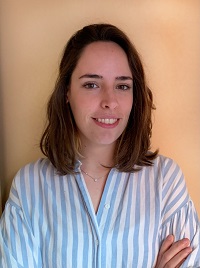
Veronica holds a Bachelor's degree in Political Science and Public Management and a Master's degree in Social Policy, Work, and Welfare. She has experience and training in the fields of community work, social issues, and global justice. Her research interests include: addressing social inequalities, promoting gender equality, and advocating for inclusive policies that support vulnerable communities.
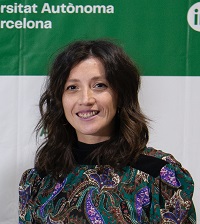
Pia is Special Education teacher. She is a graduate in Education and possesses a diploma in qualitative research, master's degree in Psychosocial Intervention and PhD in Educational Psychology. Her research interests include: anti-racist feminism, educational innovation, diversity, inclusive and intercultural education.

Nikolina Janjic is a graduate in sociology from the University of Barcelona and is a research assistant on the GEiO project. Her research interests focus on gender, community integration and social well-being. She is particularly interested in translating research into effective social strategies.
